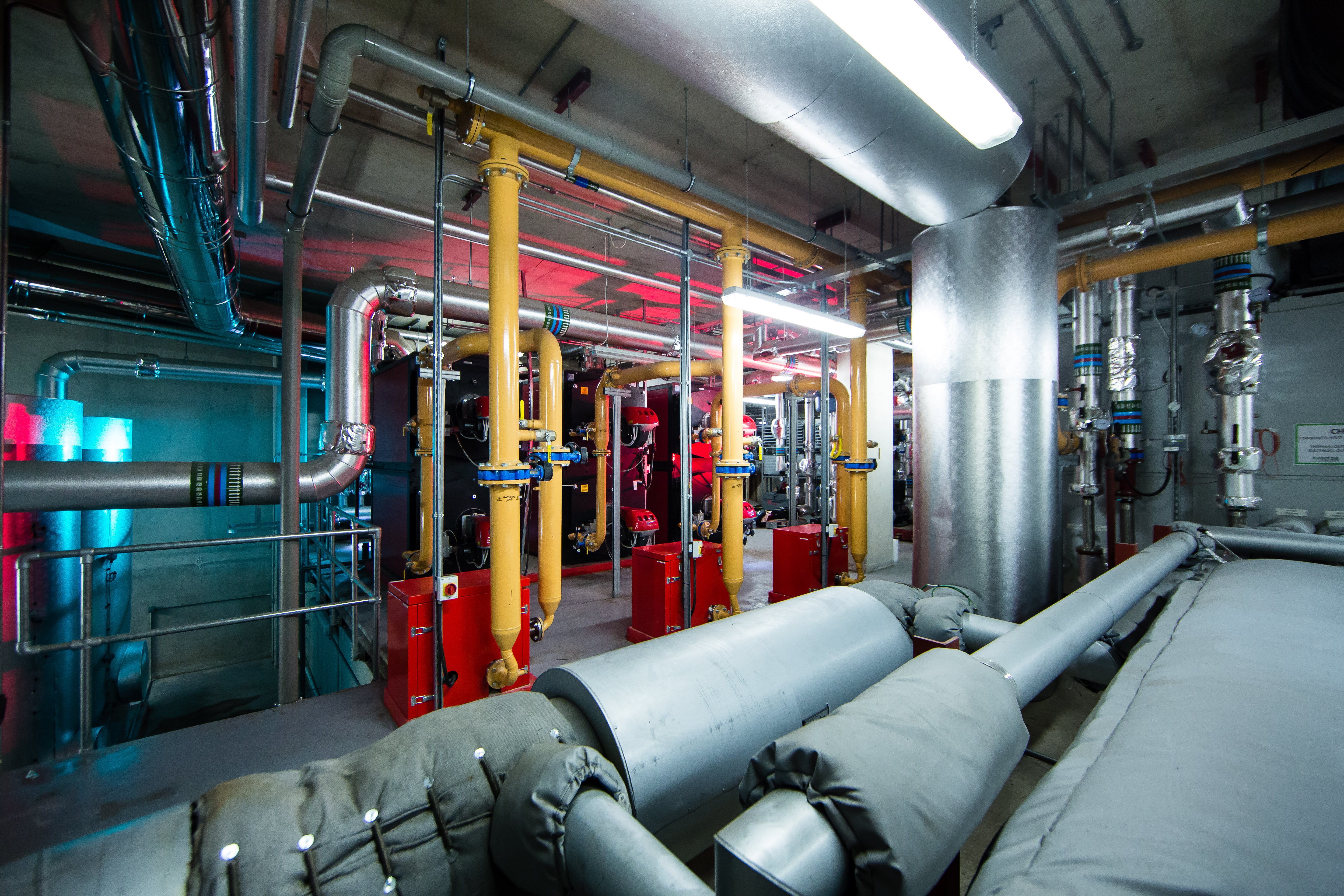In an article written for Energy in Buildings and Industry Magazine, Ian Allan, Head of Market Strategy at Switch2 Energy, discusses the important role heat networks in decarbonising the UK's heat supply.
As global businesses and governments develop action plans for a net-zero future, communities must exploit the full potential of heat networks as an affordable and sustainable solution for heating homes and businesses.
The latest UK energy trends statistics show that domestic energy use contributes approximately 18% of CO2 emissions, which come mainly from natural gas used for heating, hot water and cooking.
While huge strides have been made in decarbonising power, there has been little progress in eliminating greenhouse gas emissions from heating. Urgent solutions are required, including wider use of heat networks and improving the efficiency of existing district heating schemes. However, most existing heat networks still use gas as their main fuel. The challenge is to make them more efficient and replace gas on existing networks.
Heat network potential
The government's Clean Growth Strategy states that heat networks could meet 17 to 24 percent of UK heat demand, which is a massive increase on the current 2%. Heat networks are a key element of the proposed Future Homes Standard, which aims to ensure that future new build homes emit 75 to 80% less CO2.
The Future Homes Standard identifies that heat networks, heat pumps, hydrogen and biogas are some of the key low carbon solutions required to radically improve emissions performance of domestic heating.
The proposals take into consideration heat decarbonisation recommendations by the Committee on Climate Change (CCC), including a proposed ban on gas boilers in new homes from 2025. We believe that this radical proposal must go even further if the UK is to meet its net-zero 2050 target. To put this in context, the UK is one of the few European countries to rely on fossil fuel gas as the main source of heating. By comparison, the Netherlands (which is one of the only other gas-reliant European countries) banned new gas boilers in 2012 and is now replacing existing gas boilers.
Mature low carbon solution
A major advantage of heat networks is that this is a mature technology that can be deployed now to address the decarbonisation challenge. Wherever there is a dense heat requirement, such as in urban areas, district and community heating should be considered. This is particularly important where there are opportunities to utilise waste heat or tie into other local heat sources.
Recycling waste heat
The UK wastes more heat than it requires to meet its entire demand, so it's vital that this 'lost' heat must be captured and re-used locally. Heat networks provide an effective solution by using heat productively close to the point of generation.
The Scottish Government is making significant progress in its zero carbon policy and Local Heat & Energy Efficiency Strategies (LHEES). This includes a zoning policy that allows Local Authorities to demand that buildings connect to a heat network both to export their own surplus heat or to consume heat from the network. This could be replicated across the wider UK.
Future of heat networks
Another advantage of heat networks is that they are fuel agnostic, so can accommodate cleaner, new fuels and technologies, such as hydrogen and heat pumps to reflect future advances in technology.
While hydrogen is an immature technology that is still evolving, the heat pump market is much better developed. However, one of the barriers to rolling heat pumps out at scale relates to the wider challenge of weaning the UK heating system away from natural gas. This is partly due to the economics of cheaper gas prices relative to electricity, which is used for heat pumps. Gas incurs little carbon tax, with electricity bearing the major taxation burden of decarbonising the grid. This disparity will slow the transition to cleaner heating methods.
Improving efficiency with digitisation
The transition to cleaner new heat network technologies and 4th and 5th generation systems, which work at lower temperatures and more efficiently, will take time. Meanwhile, improving efficiency across existing schemes is crucial. Switch2 is delivering energy savings of 35% from its optimisation service. This relies on gaining full real-time visibility of performance across the entire heat, which can be achieved by combining complex data analytics from heat metering, Building Energy Management Systems (BEMS), sensors and other measurement points.
These insights can be accessed on any device to inform continuous optimisation of network performance and preventative maintenance strategies. Such an intelligence-led approach ensures maximum efficiencies and reliable 24/7/365 operation, leading to cost and emissions reductions.
Potential operational issues can be predicted or immediately identified and corrected before a critical event is realised. In this way heat scheme operators are making major progress in tackling key performance issues, such as overheating within communal areas, flow rates and return temperatures and pumping and primary fuel costs.
People power
Residents and businesses, who consume the heat, are key to improving environmental performance. The citizen-led Extinction Rebellion demonstrates the will of the people to impact the climate emergency and this public will is being harnessed in the heat network sector.
By combining sustainability awareness campaigns with compliant smart metering technologies that give customers visibility, control and management of their energy consumption, huge emissions savings are achieved.
Wolverhampton Homes case study
Wolverhampton Homes, which manages more than 23,000 homes for Wolverhampton Council, has partnered with Switch2 to develop a complete digital heat metering strategy.
Residents previously paid for their heating through a flat rate charge included within the rent, but agreed to transition to a more flexible, smart pay-as-you-go system combining heat interface units, heat meters and smart meters. By giving residents full visibility of how much heat they are using, and their minute-by-minute energy spend, they have moderated consumption. This has reduced the average heat bill to £18 per month, delivering projected savings in excess of 30%
The accurate, transparent metering data is also helping to inform efficient operation of the energy plant, leading to optimised performance, higher efficiency operation and lower emissions.



